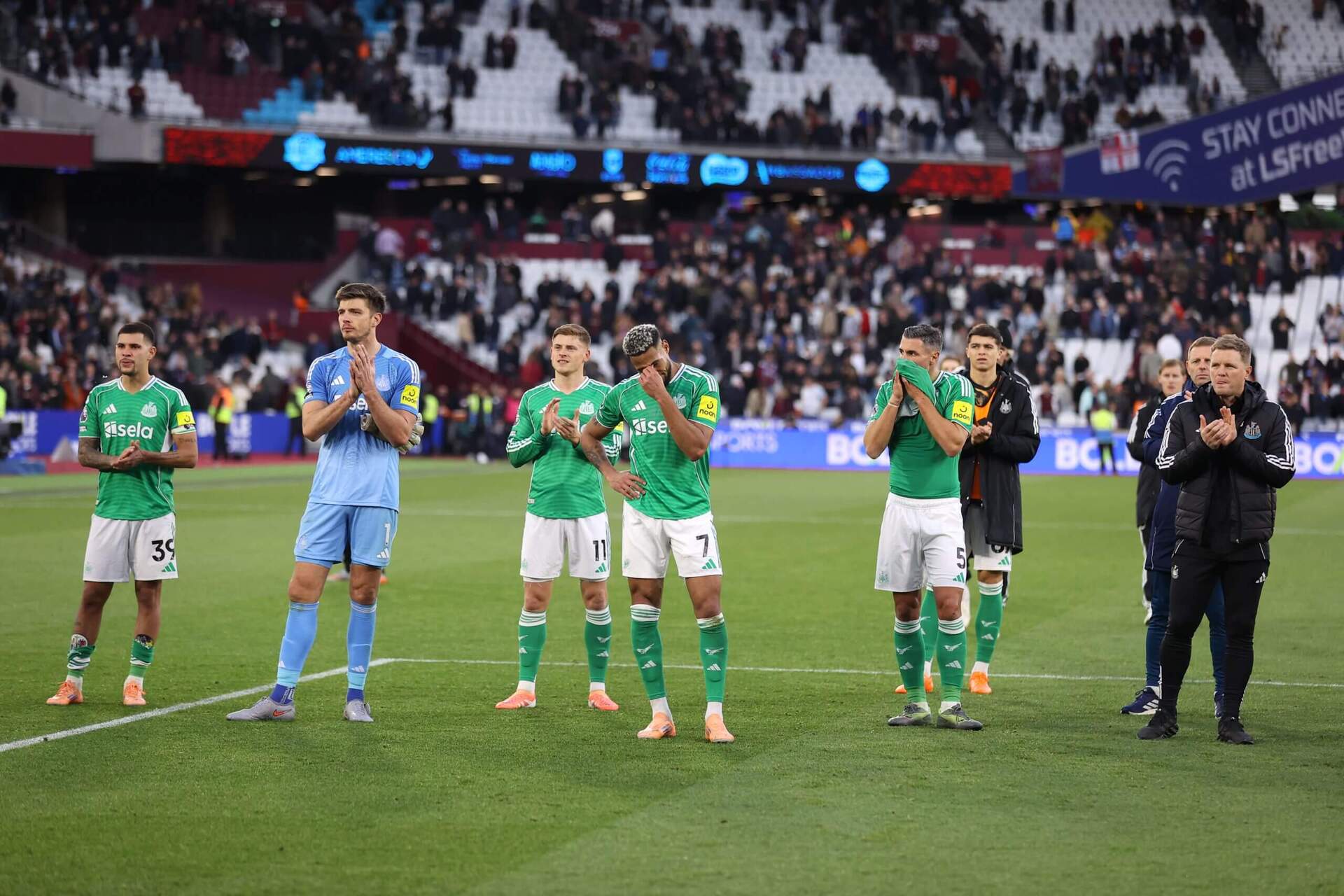
The Ritual of the Post-Match Clap
If players clap in a stadium full of boos, does it make a sound?
Every weekend, thousands of fans travel the country, investing money, time, and emotion into following their club. When the final whistle blows after a limp performance, many are left asking whether that ritualistic round of applause from their team is sincere or simply a box-ticking exercise.
Do frustrated away fans, £30 on tickets, £120 on trains, £30 on food and drink, really feel consoled by a centre-back’s slow clap? Is regret best conveyed by solemn rhythm or strained intensity?
At West Ham’s London Stadium, players stand nearly 50 yards from their supporters. At Accrington Stanley, they could practically shake hands. Does proximity dictate sincerity? Or has football reduced the post-match clap to performance theatre?
Looking for unbiased, fact-based news? Join 1440 today.
Join over 4 million Americans who start their day with 1440 – your daily digest for unbiased, fact-centric news. From politics to sports, we cover it all by analyzing over 100 sources. Our concise, 5-minute read lands in your inbox each morning at no cost. Experience news without the noise; let 1440 help you make up your own mind. Sign up now and invite your friends and family to be part of the informed.
The Tottenham Incident
After Tottenham Hotspur’s dismal 1-0 defeat at home to Chelsea, defenders Djed Spence and Micky van de Ven trudged off without acknowledging the fans. The boos were deafening, the mood toxic.
Despite Spurs sitting fifth in the table, the supporters’ frustration boiled over after a run of dour performances. Their new manager Thomas Frank, known for his enthusiasm and penchant for unity, noticed. As his players turned to the tunnel, he theatrically spun his finger to send them back towards the fans.
They ignored him. Shoulders slumped, faces grim, they vanished down the tunnel.
“It’s just a small thing,” Frank said afterwards. Yet the moment exploded online. Fan-filmed videos clocked thousands of shares, sparking another tedious but telling debate: are players obliged to clap, no matter how angry or embarrassed they feel?
Fans, Feelings and Financial Fairness
Many argue yes. With ticket prices at Tottenham among the highest in Europe, supporters believe they deserve recognition, regardless of the result. To them, applause is the least a player can offer in return for financial and emotional investment.
Others see it differently. Clapping, when detached from genuine emotion, becomes hollow. If players are furious with themselves, why shouldn’t they walk off in silence? Why should they be forced to perform contrition for optics?
This tension, between authenticity and obligation, captures a deeper question about modern football. Supporters demand passion, but they also demand professionalism. Sometimes those values clash.
The Case of Vitor Pereira
Just ask Vitor Pereira. After a 3-2 defeat to Burnley, the former Wolves boss approached home fans to applaud them, only to be met with fury. Within seconds, a verbal clash erupted, and he had to be restrained by staff.
“Two months ago, they sang my name!” he exclaimed afterwards, exasperated.
This contradiction lies at football’s heart: fans can be fickle. One week’s hero is the next week’s villain. The sport allows supporters to vent emotion but demands players absorb it silently.
The Performance Problem
Football’s post-match clapping has become so ritualised that its meaning is now up for debate. For some, it’s a vital act of connection. For others, it’s corporate performance art, a remnant of an age when clubs marketed “passion” as part of the product.
The irony? The more football becomes commercialised, the more fans expect gestures of authenticity. Yet these gestures, by nature, become staged.
The risk is that football slides further into “the customer is always right” culture, a trap where emotional performances are scripted, not felt.
The Limits of Obligation
There are, of course, lines of decency. If a player faces personal abuse from supporters, should they still clap? Surely not. If boos rain down during the game, undermining the team’s morale, must the players still applaud those who jeered them? Again, probably not.
Personal choice and emotional honesty must count for something. For many footballers, clapping after a humiliating defeat feels disingenuous. Yet refusing to do so invites accusations of arrogance or disrespect.
It’s a no-win situation.
When Applause Becomes Contractual
Imagine a future where clubs write micro-behaviours into contracts: every player must walk to the away end and applaud for 20 seconds after full-time. Would that really strengthen the bond between fans and players? Or would it reduce emotion to a clause in a spreadsheet?
Football thrives on feeling. A gesture means nothing without heart behind it. Empty applause satisfies optics but erodes authenticity.
What Really Matters
Ultimately, sincerity cannot be legislated. Apologies and gratitude only matter when they are genuine. Supporters crave connection, not choreography.
When Spence and van de Ven stormed off, perhaps they were doing what many in the stands felt like doing themselves. Sometimes shared anger says more than polite applause ever could.
And if all else fails? We can all take a cue from football’s great irony. To every angry comment and debate, respond not with words but emojis, three little pairs of clapping hands.
It’s heartfelt. It’s performative. It’s football.




